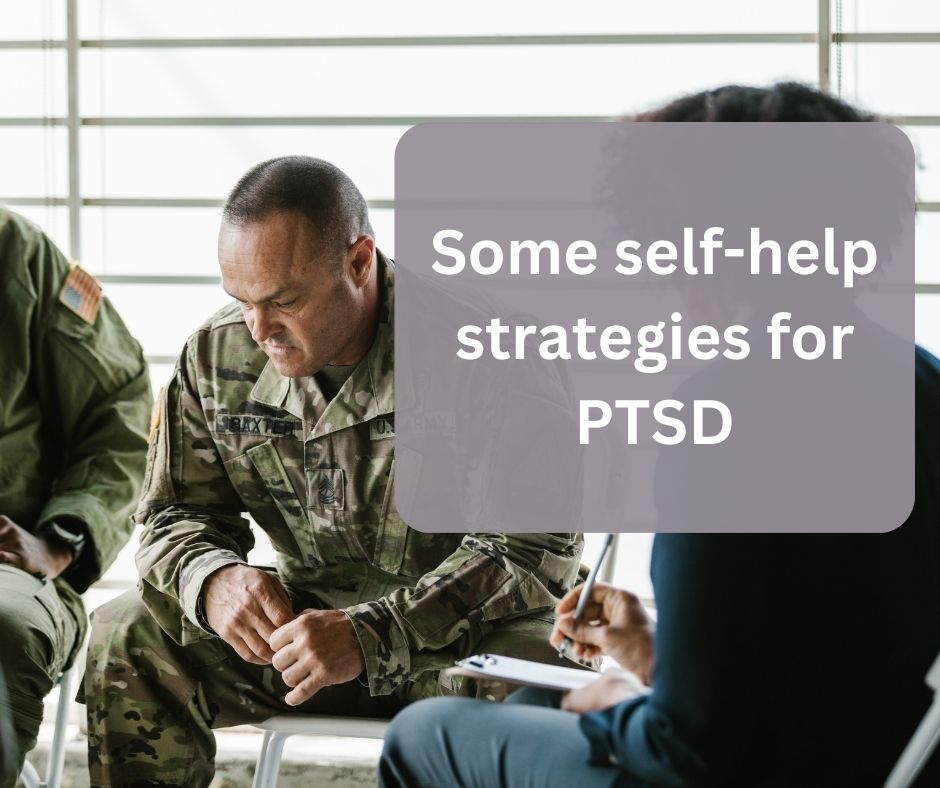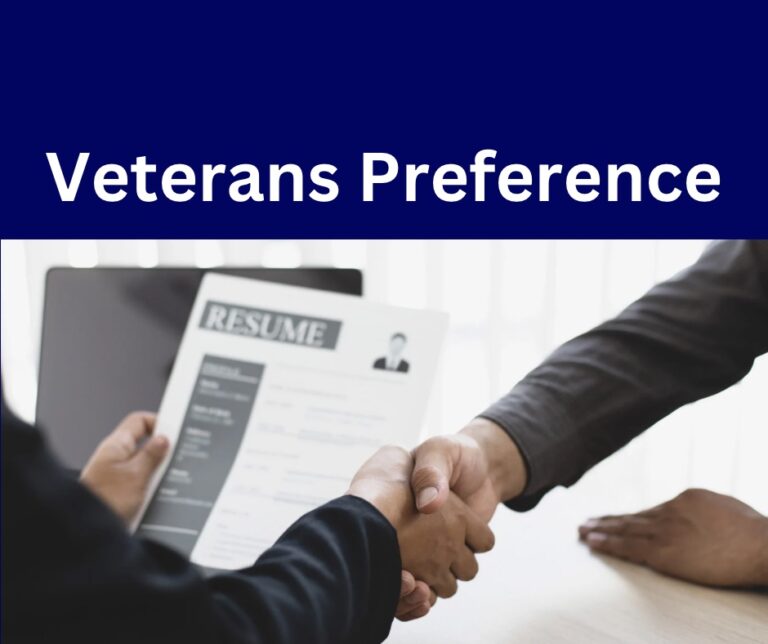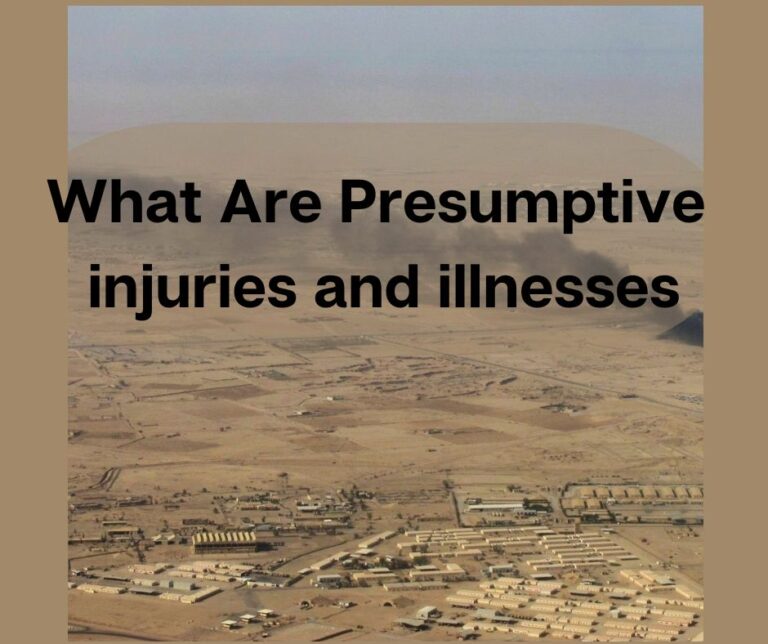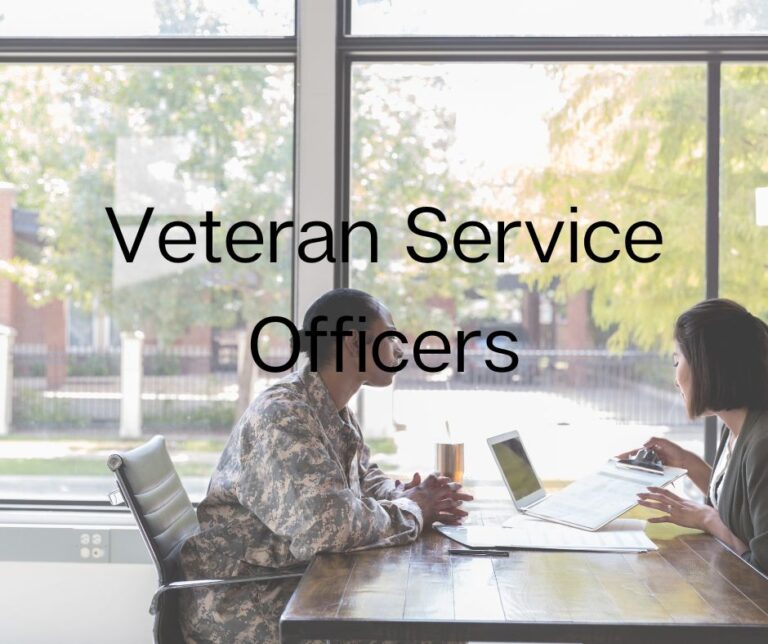Some Self-Help Strategies for PTSD
While professional treatment is crucial in addressing PTSD, there are also self-help strategies and resources that veterans can utilize to complement their therapy and promote their own healing and well-being. Here are some effective self-help strategies to consider:
Education and Understanding:
Educating yourself about PTSD is an essential first step. Learning about the nature of the condition, its symptoms, and how it affects your mind and body can help you gain a better understanding of your experiences. Understanding that your symptoms are a natural response to trauma can alleviate some of the guilt and self-blame that often accompany PTSD.
Self-Care and Stress Management:
Prioritizing self-care is crucial in managing PTSD. Engage in activities that promote relaxation and reduce stress. Regular exercise, such as walking, yoga, or swimming, can help regulate stress hormones and improve overall well-being. Additionally, practicing deep breathing exercises, meditation, or mindfulness techniques can be beneficial in managing anxiety and grounding yourself in the present moment.
Healthy Lifestyle Habits:
Adopting healthy lifestyle habits can have a positive impact on your mental health. Ensure you’re getting enough sleep, as sleep disturbances often accompany PTSD. Maintain a balanced diet that includes nutrient-rich foods and limit the consumption of substances like alcohol and caffeine, as they can exacerbate symptoms. By taking care of your physical health, you’re providing a foundation for your mental well-being.

Establishing a Supportive Network:
Surrounding yourself with a supportive network of friends, family, and fellow veterans can be invaluable. Connect with individuals who understand your experiences and provide a safe space for you to express yourself. Share your journey with trusted loved ones who can offer empathy, encouragement, and understanding. Online communities and forums dedicated to veterans with PTSD can also serve as sources of support and validation.
Stress-Reducing Techniques:
Incorporate stress-reducing techniques into your daily routine. Engage in activities that promote relaxation and help you unwind. This can include listening to calming music, practicing hobbies that bring you joy, spending time in nature, or engaging in creative outlets such as writing, painting, or playing a musical instrument. Finding healthy outlets for stress can help redirect your focus and provide a sense of relief.
Journaling and Expressive Writing:
Writing can be a powerful tool for self-reflection and emotional processing. Consider keeping a journal to express your thoughts, emotions, and experiences. This practice can help you gain insight into your feelings, track your progress, and identify patterns or triggers. You can also explore expressive writing techniques, such as writing letters to yourself or your past self, to work through unresolved emotions.
Mindfulness and Relaxation Techniques:
Incorporating mindfulness and relaxation techniques into your daily routine can promote a sense of calm and help manage symptoms of PTSD. Mindfulness exercises, such as body scans or guided meditations, can bring your focus to the present moment and alleviate anxiety. Relaxation techniques like progressive muscle relaxation or visualization exercises can help reduce tension and promote relaxation.
Engaging in Meaningful Activities:
Finding purpose and meaning in your post-military life is essential for your overall well-being. Engage in activities that align with your values and bring you a sense of fulfillment. This can include volunteering, pursuing hobbies or interests, or connecting with organizations that support causes you are passionate about. Engaging in meaningful activities can help rebuild a sense of identity and purpose beyond your military service.
Utilizing Technology and Apps:

In today’s digital age, there are various mobile applications and online resources specifically designed to support individuals with PTSD. Apps like PTSD Coach, Headspace, or Calm provide tools for managing symptoms, meditation exercises, and guided relaxation techniques that you can access anytime you need them. These apps can be particularly useful during moments of distress or when you’re seeking immediate support.
Peer Support Programs:
Consider joining peer support programs that connect veterans with others who have experienced similar challenges. Organizations like the Wounded Warrior Project or Team Red, White & Blue offer opportunities to engage in recreational activities, physical fitness events, and social gatherings with fellow veterans. Participating in these programs can foster camaraderie, reduce feelings of isolation, and provide a sense of belonging.
Self-Help Books and Resources:
There is a wealth of self-help books and resources available specifically tailored to veterans and PTSD. Books like “The Body Keeps the Score” by Bessel van der Kolk, “Once a Warrior – Always a Warrior” by Charles Hoge, or “The PTSD Workbook” by Mary Beth Williams and Soili Poijula offer valuable insights, coping strategies, and practical exercises to help you navigate your healing journey.
Continuing Education and Skills Development:
Engaging in continuing education or skill-building activities can contribute to your personal growth and open up new opportunities. Explore vocational training programs, online courses, or workshops that align with your interests and career aspirations. Expanding your knowledge and acquiring new skills can boost your confidence, enhance your self-esteem, and provide a sense of purpose.
Service Animal or Emotional Support Animal:
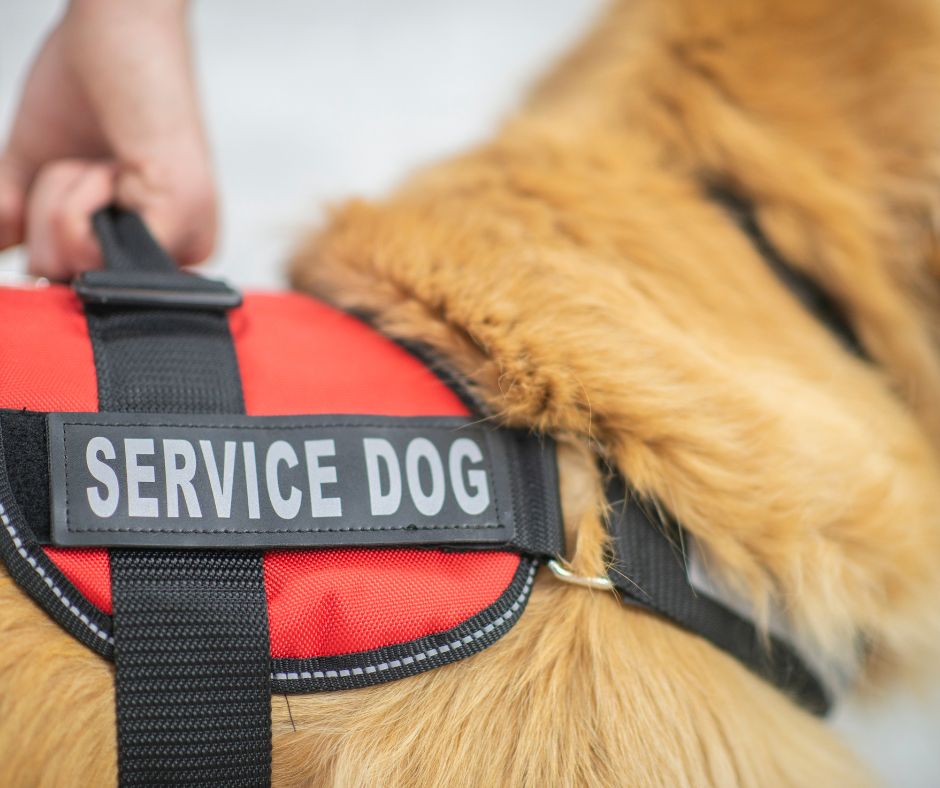
Consider whether a service animal or emotional support animal may be beneficial in managing your PTSD symptoms. These animals can offer companionship, emotional support, and assistance in managing anxiety and stress. Consult with your healthcare provider and explore organizations like the U.S. Department of Veterans Affairs or Assistance Dogs International for more information and guidance.
Remember, while these self-help strategies can be valuable, they should not replace professional help. It’s important to collaborate with mental health professionals and utilize their expertise as you navigate your healing journey. Each person’s experience with PTSD is unique, so it’s essential to find the strategies and resources that work best for you.
In conclusion, by combining professional help with self-help strategies, you can create a comprehensive approach to combatting PTSD. Embrace the support that’s available to you, take care of your physical and mental well-being, and be patient with yourself as you navigate the healing process. You’ve already shown immense strength and resilience, and with the right tools and support, you can continue to make progress and reclaim your life beyond PTSD.

